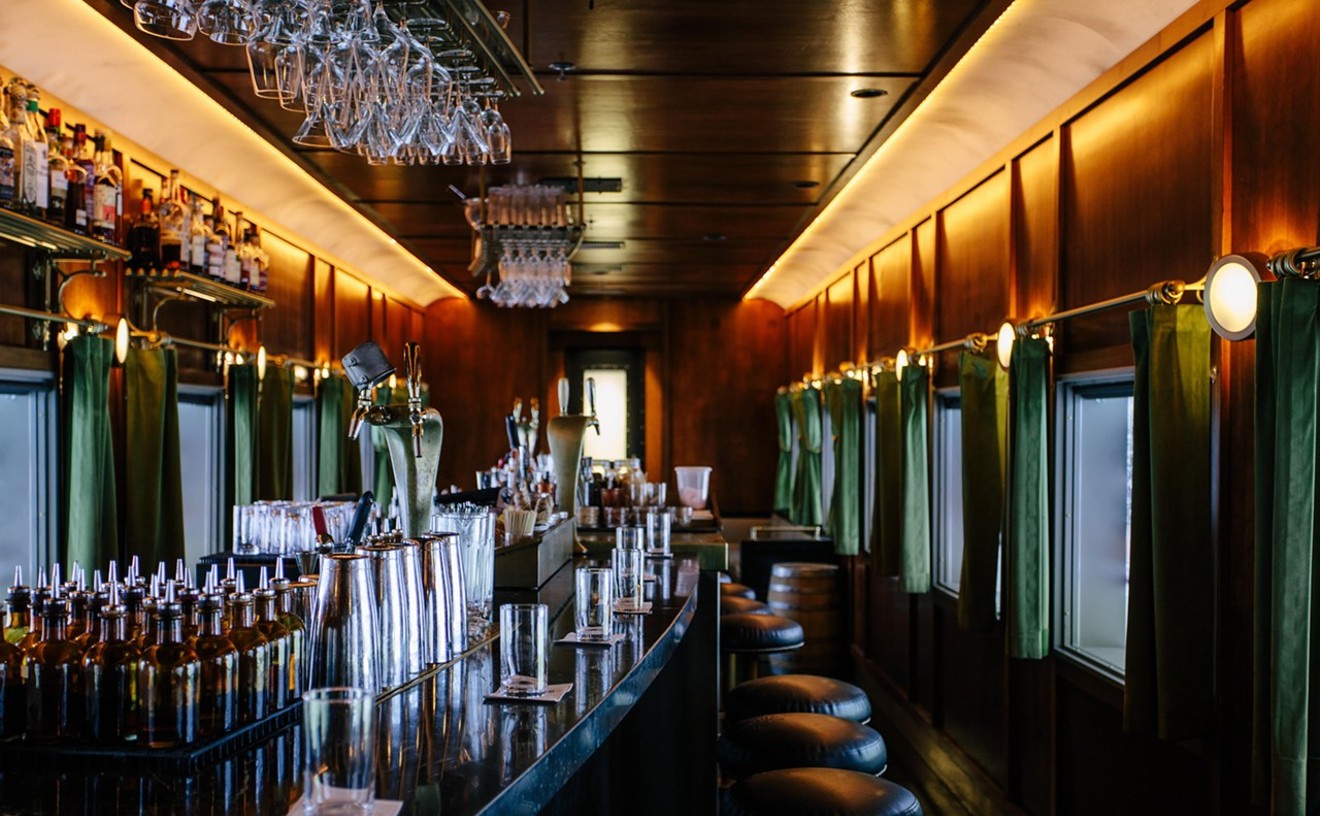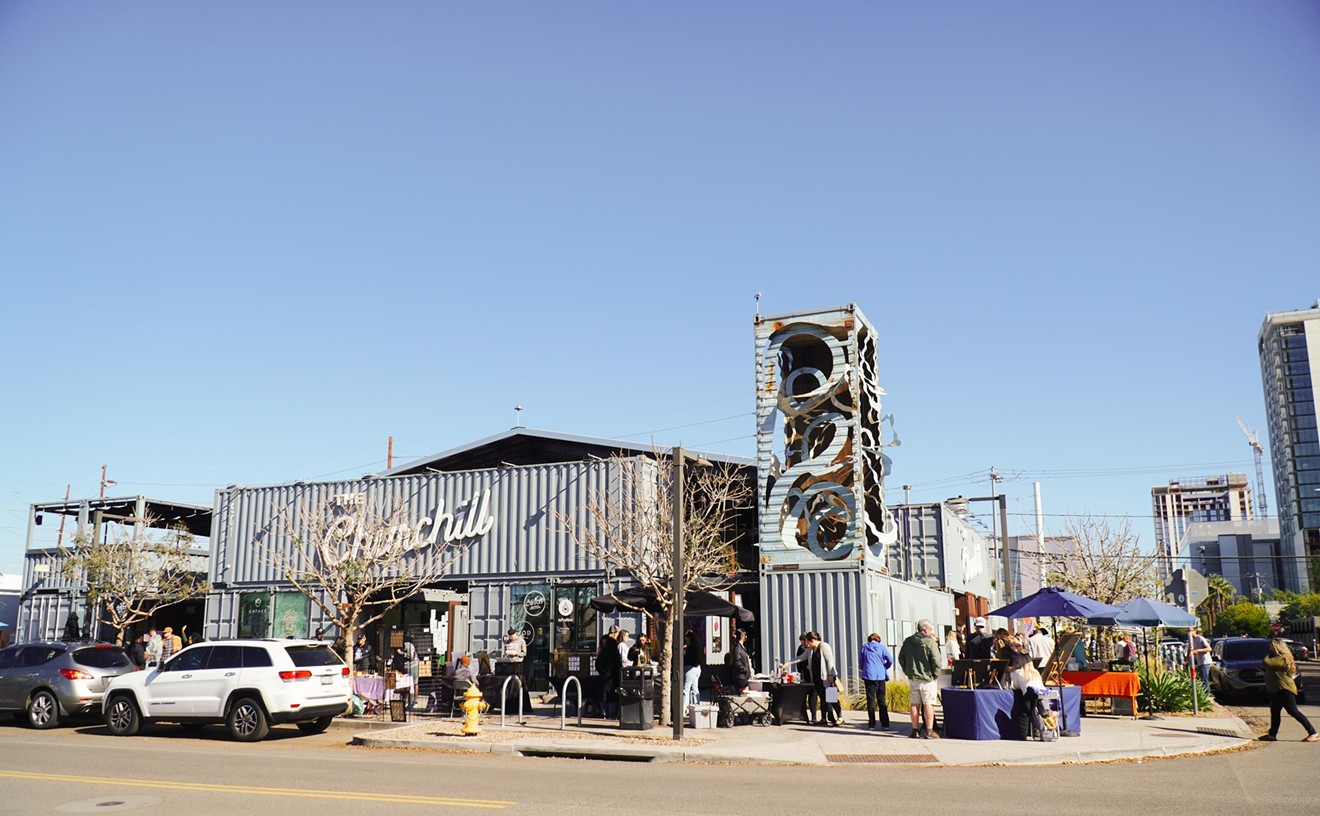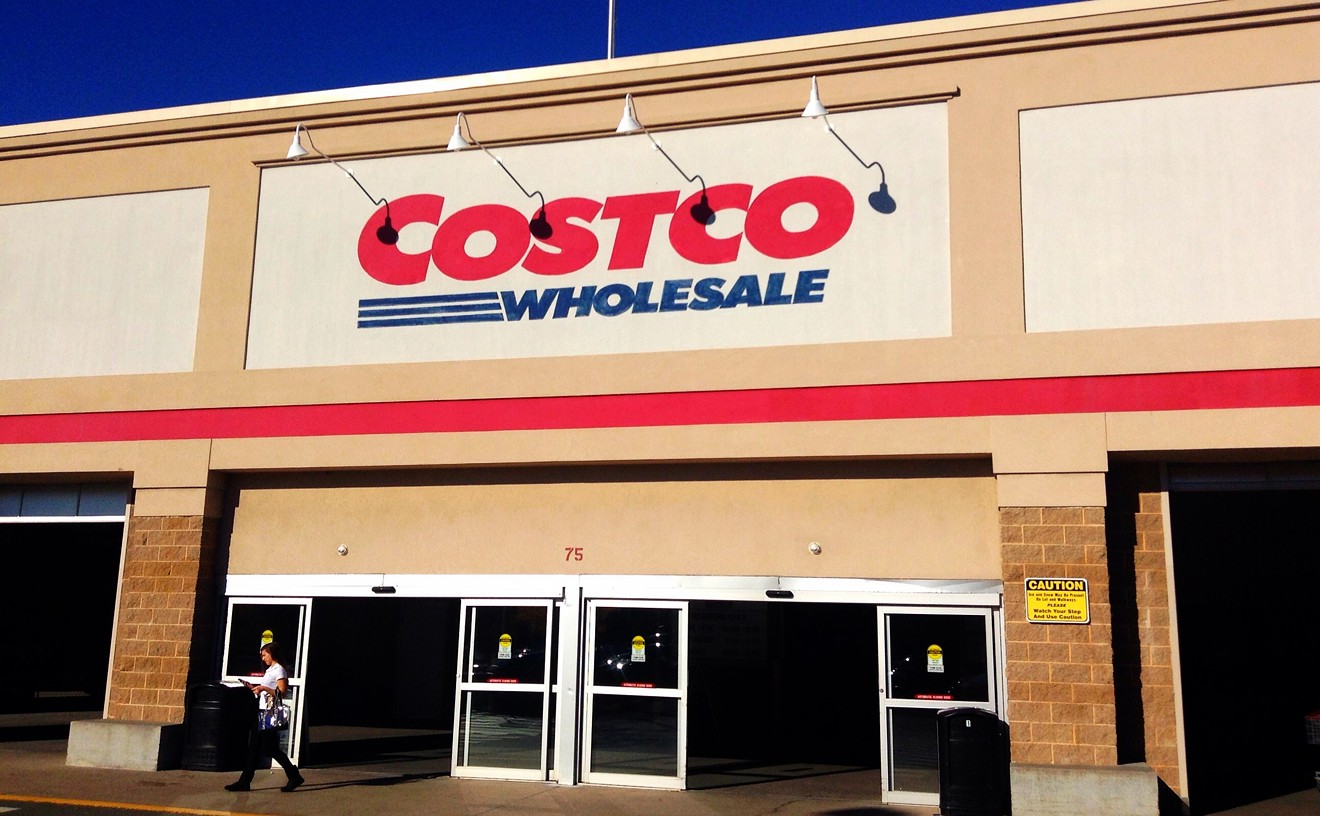Welcome to Chow Bella's Bites & Dishes, where Valley chefs and restaurateurs respond to a question New Times food critic Laura Hahnefeld has on her mind. Have a question you'd like to ask? E-mail [email protected].
America's recession hit the restaurant industry hard, with elements such as reduced traffic, staff layoffs, lower ticket totals, more chefs making comfort food, and (the worst) closings acting as bellwethers for the economy as a whole.
Is it over?
In the Valley, many chefs and restaurateurs say, "Not yet," but that the landscape is changing. Here's what they had to say about how and in what ways the industry is adapting.
See also: - Chefs, What's Your Favorite Ice Cream? - Should We Eliminate the Concept of "Kid Food"?
Silvana Salcido Esparza Chef and owner, Barrio Cafe and Barrio Queen
A lot of people think the Barrio Cafe did not feel the recession because we are "always busy." Bullshit. Just ask our servers and staff. Our foot traffic is up, but the numbers are the same. I won't be able to tell if it's over until folks start hitting that top-shelf of tequila.
Chef Matt Taylor, Market Street Kitchen
Definitely not, but things are looking up. The industry has changed. Cooks and restaurants have had to adapt more today than in the past. Chefs have to cook things they might not have cooked before. Perhaps preparing food in a more simplistic way and making the cuisine more approachable to the masses.
Chef Ben Mulé, Hidden Meadow Ranch (Greer)
The true recession hasn't even begun for our industry. Experts are saying today is just the tip of the iceberg. Probably not this year, but by the end of next year at the latest, there is going to be a serious money shortage for our average diner. Fast-casual restaurants will have the least to lose.
Christopher Gross Chef and Owner, Christopher's Restaurant & Crush Lounge
Not yet. It has changed a bit -- you have to be more creative to drive business to your place. You're seeing a lot of restaurants doing special menus, happy hours, half-off wine, restaurant deals, etc. And you're seeing a lot of more super-casual restaurants popping up.
Gio Osso, Chef and Owner, Virtu
I'm not so sure the recession is completely over. People are still being very careful on how they spend their money. I'm sure they don't want to get caught in a hole if the economy takes another dip. The industry has had to adjust by being mindful of spending patterns and making sure that menus and prices are sustainable in this economic environment.
Bill Sandweg Owner, Copper Star Coffee
The recession is not over for many of us, but people are coming away with a new interpretation of value. Customers are learning to keep it local, and businesses have learned to become lean and mean. Those of us who have weathered this five-year-long storm should be around for a while.
Chef Matt Zdeb, Sushi Roku
The recession isn't over, but things are changing for the better. There are a lot more people out and about during the summertime, which is a huge boost for us. The tighter times forced us to lean out our kitchen staffs, but as such, we are breeding the next generation to operate in a whole new way, and the industry will benefit because of it.
Joe Johnston, Restaurateur
It's over in that restaurateurs feel encouraged -- it will cause new concepts to spring up. Not all will survive, but it should be an interesting time in the food scene. I think you will continue to see chefs going down market into comfort foods and simple concepts, which probably leaves an excellent opportunity for higher-end, technique-driven places.
Rick Phillips, Owner, Bootleggers
I wouldn't say it's over, per se. In the great compromise of cutting expenses, dining out still rates pretty low compared to cars, trips, and shopping. People can still feel good about themselves by dining out. Check averages in high-cost restaurants have gone down as people have begun sharing dishes and bottles of wine, but the guy that serves a burger and beer has still been able to thrive.
Chef Nicholas Schaus, Twisted Rose Winery & Eatery
Thing are starting to turn around for restaurants. People are picking where they spend their money, but they're still going out and spending it. The biggest change is the extra: Restaurant A has the same meal as restaurant B, but B has a chef that comes out and touches the table and maybe offers a dessert. You can't be okay with good enough or even great. It now has to be great plus one to make sure you get a return visit.
Chef Maurice Gordon, The Westin Phoenix Downtown
For the most part, it's over. Guests are now interested in receiving more value when dining out and aren't as impressed with fancy, expensive dishes. Since the recession, people have noticed that it shouldn't cost an arm and a leg to have a good meal. And restaurants have turned to sourcing out the best local products to help boost the local economy.
Deborah Schneider Chef and Partner, SOL Mexican Cocina
Restaurants should always be practicing for the next recession. That means never taking your customers for granted, always doing your very best in the kitchen, providing great service, and always reaching out to new customers. If you don't do this all the time, no matter how great you think you are, you're toast when the tide ebbs again.










